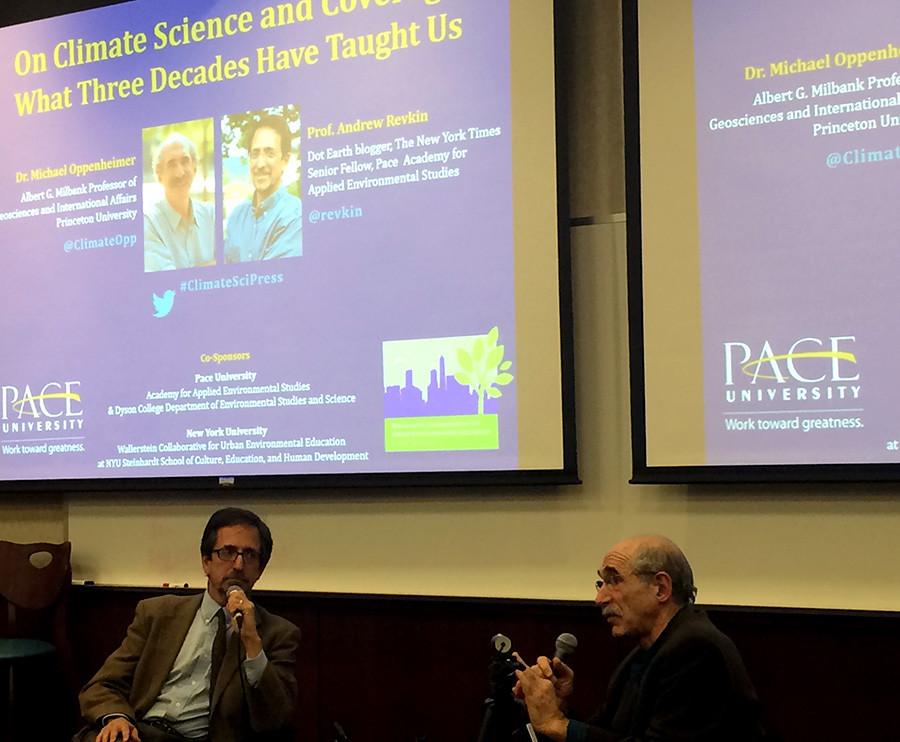Experts discuss climate change
Veteran climate scientist Michael Oppenheimer, right, and NYT climate journalist Andrew Revkin discuss climate change.
March 31, 2015
The statistics proving climate change, including rising ocean levels and higher temperatures, are well known and accepted by now. At a panel titled “On Climate Science and Coverage: What Three Decades Have Taught Us,” held at Pace University and co-hosted by NYU Monday night, Pace professor Andrew Revkin questioned scientist Michael Oppenheimer on his efforts to fight climate change through research and testifying before Congress.
Oppenheimer has numerous accomplishments, most notably working with the Intergovernmental Panel on Climate Change, while Revkin has covered climate change with The New York Times for nearly three decades.
Following are some of the main points discussed at the event.
Andrew Revkin: We should probably talk about that thing called the Intergovernmental Panel on Climate Change.
Michael Oppenheimer: The IPCC was set up in 1988. Part of the reason it was set up — not the only reason — it was a proposal that had been floating around. But in the late 1980s a bunch of scientists and international organizations started stimulating interest in the problem. The U.S. government got afraid that this interest would run away from them. That something would actually threaten to get done about the problem which the U.S government at that point was not interested in seeing happen. They pushed forward this pre existing proposal of the science assessment process in setting up a new institution with the full expectation that if you put a bunch of scientists in the room together, they will never agree on anything. So the U.S. government and others were very surprised when the first report came out in 1990 with the firm consensus that climate change was a problem.
AR: Has the IPCC done its job?
MO: IPCC has done a terrific job. It’s not matched well to the evolving world, but it did what it was set up to do. It formed a sort of one stop shopping place where the governments could go, get a reliable input on what the science said, and they didn’t have to squabble among themselves about what the science says and then they could move forward and develop policies. Of course the latter hasn’t happened, but it did what it was set up to do.
AR: What are your lesson’s learned in the policy arena? Particularly in the Congressional arena?
MO: I’ve been part of testifying before Congress where it made a significant difference. Mostly with the problem of ozone depletion. Where the problem was too imminent, too serious, stuff was happening right then that was shocking people with the ozone hole. Our leaders were really open to try to use science to try to figure out was going on. So scientists would get up to testify about something and it would have an immediate impact on those listening. That’s not quite true about the climate problem. People are more disposed with particular perspectives. You go up there, you say what you honestly think the truth is. You’re either going to be listened to or not listened to based on the policy implications of it — not dependent on what the information is.
A version of this article appeared in the Tuesday, March 31 print edition. Email Justine Morris at [email protected].














































































































































